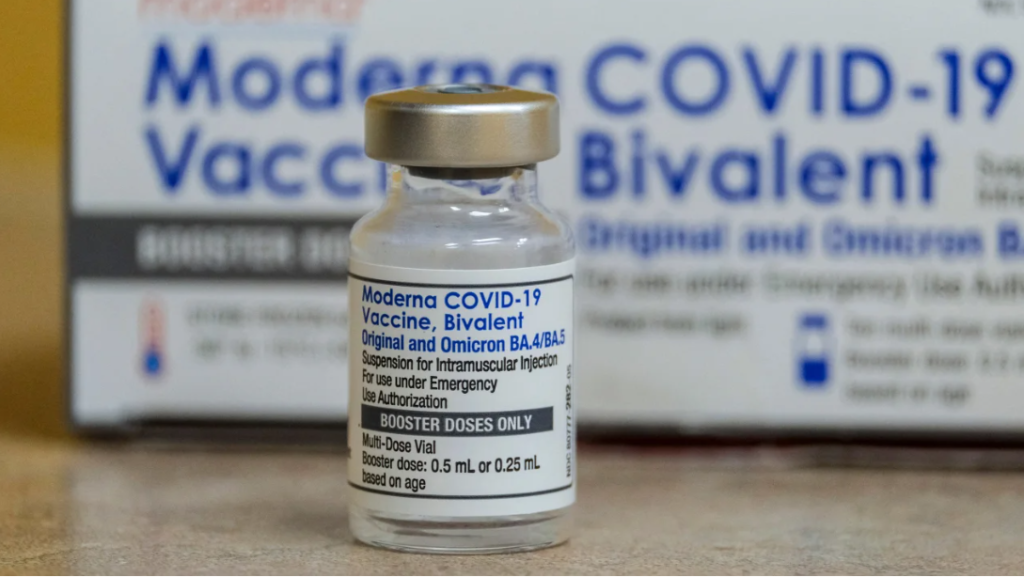Author: Peizhong Peter Wang with assistance from ChatGPT. The original article was written in Chinese and published in CNIW's Tencent Official Account, March 26, 2023 《北美华人健康》公众号.
Recently, some friends asked me if the pandemic has ended. Do we still need to get vaccinated against COVID-19? By coincidence, the Cross-Cultural Community Services Association has arranged for me to give a talk on the latest developments in COVID-19 vaccination on April 3 for elderly friends. Therefore, I would like to take this opportunity to organize and share the relevant content with everyone.
Has the pandemic ended?
The accurate answer is no, as the official announcement of the end of the pandemic still requires the official announcement by the authorities. However, let us take a look at the actual data to interpret the current situation.
As of March 19, 2023, more than 760 million confirmed cases and over 6.8 million deaths have been reported globally. According to the World Health Organization (WHO) report on March 22, over 3.7 million new cases and over 26,000 deaths were reported in the last 28 days (20 February to 19 March 2023), a decrease of 31% and 46%, respectively, compared to the previous 28 days (23 January to 19 February 2023). However, there are significant regional differences, including increases in some regions. As shown in the graph below, since December 2022, the number of reported cases and deaths due to COVID-19 has been consistently declining.

The author believes that regardless of the official announcement, the COVID-19 pandemic has already entered its final stage, and at least it can be safely said that the outbreak is no longer an emergency public health event in most parts of the world. Since November 2021, when Omicron was first reported in South Africa, despite the continuous emergence of new variants, the degree of mutation is still a sub-variant of Omicron. Although we cannot rule out the emergence of new variants with stronger pathogenicity than Omicron, given the current low global epidemic level, the possibility of a variant with stronger infectivity and pathogenicity is not very high.
The figure below shows the latest COVID-19 virus genetic typing data released by the CDC in the United States on March 25th. As can be seen from the figure, the XBB1.5 subtype accounts for an absolute majority (>88%), while the proportion of other subtypes is very low.


If there are no major changes in the pandemic situation, the United States is expected to declare the end of the COVID-19 pandemic in May this year, and the WHO may also announce the end of the COVID-19 pandemic emergency status by the end of this year. This is what we are looking forward to!


Is it still necessary to get vaccinated against COVID-19?
Recently (in February 2023), a survey of Canadian Chinese by CNIW showed that although the two-dose vaccine has been available for a long time, only about 30% of adults have received it, and less than 30% of those who have not received it plan to get vaccinated. The incidence of COVID-19 has now dropped significantly, which also means that the opportunity for exposure and infection has decreased significantly. According to data from Canada in February 2023, more than 80% of the population has received at least two doses of the vaccine (see the figure below).


In addition, although there is no accurate data, it is estimated that at least 50% of the population has been infected before. This indicates that most Canadians have varying degrees of immunity to the current circulating strains of COVID-19.
It is may be true that, for most people, COVID-19 has become a tolerable threat, even comparable to the flu. Especially for many young people, infection with COVID-19 may only be a minor inconvenience or mild illness, and may not pose significant risk.
But for older adults and immunocompromised people, this virus still poses a serious risk. In the United States, about 200-300 people still die every day from COVID-related causes, while in Canada the number is about 20-30, and the vast majority of them are adults over the age of 70 and people who are medically frail or have impaired immune systems. The following graph shows the 7-day moving average of COVID-related deaths in the United States (green line) and Canada since November 2021.


Should we continue to get vaccinated?
In short, there is no unified and accurate answer, and we hope that everyone will make their own decision based on their specific situation. The following opinions are for reference only:
For older adults, people with chronic illnesses (such as diabetes, heart disease, etc.), or those with compromised immune systems, if your last vaccination was more than 6 months ago, the author strongly recommends getting a booster shot. Because once infected, these people are still at high risk of developing severe symptoms. It is now very clear that the COVID-19 vaccine is safe and effective, so there is no need to take unnecessary risks.
If you have someone around you who needs special protection, it is still recommended to get a booster shot from their perspective.
High-risk occupational groups (such as healthcare workers) should still get vaccinated on time.
Even if you do not belong to the above three groups, getting vaccinated on time is still a good decision. Although the risk of exposure and severe illness has clearly decreased compared to before, it is not zero. However, if some people choose not to get vaccinated for the time being, it can be understood, but it is necessary to closely monitor changes in the epidemic and personal situation. The protection obtained from infection and vaccination is limited in duration. In addition, it is recommended to get vaccinated before international travel. Being cautious is not a bad thing after all.
Dr. Peizhong Peter Wang, is tenured professor of epidemiology, Faculty of Medicine, Memorial University, and status only professor, Dalla Lana School of Public Health, University of Toronto. He is also the founding director of CNIW.
